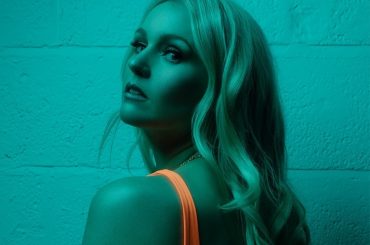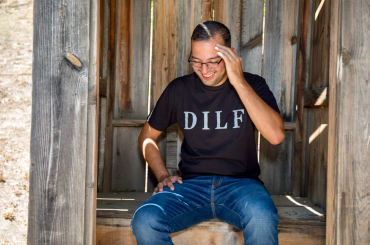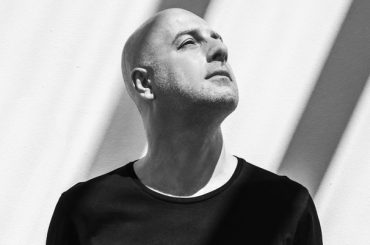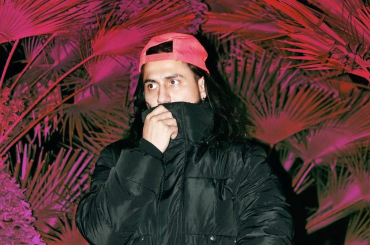By Kat Bein
For Deorro, in life and in art, struggle seems to be par for the course.
In fact, it was not so long ago that Erick Orrosquieta was a homeless teenager in his native Los Angeles, soon to become a father for the first time. Certainly, his prospects seemed less than ideal. But today, the 25-year-old professionally known as Deorro is a platinum-selling DJ/producer, signed to Ultra Records, with releases and remixes for some of the biggest names in dance and pop music.
It’s a genuine success story, sure, but also one that’s evolving, one that continues to overcome obstacles, extending all the way to the release of his latest album – the very personal Good Evening. But more on that in a minute.
Though his musical artistry began on guitar, Orrosquieta started DJing at 14, heading out to hired gigs with his Mexican-immigrant father, as a means to make the family some extra cash. When he was 15, he sired his first son, and by 17, he’d dropped his guitar and picked up a laptop, trying his hand at bedroom production of electronic music (then using the handle, TON!C).
Life was a struggle, but through it all, his positive outlook and energetic bounce records kept the fans and the regional Los Angeles festival bookings coming. He caught his break in 2012 when superstar DJ/producer Chuckie asked him to remix “Make Some Noise.” Its jumpy, funky breaks landed on Beatport’s Top 50, and it brought more remix requests from top names like Steve Aoki, Laidback Luke, and Gareth Emery.
Deorro collaborated with Diplo and Aoki on the hard, bounce banger “Freak” in 2014, and immediately followed up with R3hab on “Flashlight.” He even got the pop nod of approval when Chris Brown hopped on his original hit “Five Hours.” His reputation was built on bright, ballsy beats that slap the listener in the face while forcing the feet to dance. But in now 2017, he’s out to prove that his depth as an artist knows no bounds.
Bounce music is fun at a party, but it doesn’t necessarily represent the complete musical soul of the man. Deorro’s about much more than that, and his latest full-length Good Evening is proof. The album offers 24 tracks—12, if you don’t count the atmospheric interludes—that thematically wrestle with life’s meaning and physically grapple with the confines of sound.
Rooted in an existential crisis Deorro felt he was having, it’s a solid story from start to finish, one that blends and weaves the varied scenes of life into one, beautiful, hour-long journey. It shifts from cartoonish glee to gospel to dubstep-influenced vibes with ease – one moment, it’s thoughtful and introspective, the next it’s got your girl twerking.
Of the dancefloor movers, “Butt Naked” is a hardstyle beast, while “Goin’ Up” (featuring DyCy) is pure festival joy. From its moody, acoustic numbers like “Honest Man” to the funkier cuts like “Turn Back Time” (featuring Teemu), Good Evening is unlike anything you’ll hear from the EDM landscape this year.
We caught up with Deorro, just before the album dropped this past Spring.
DJ Times: How does it feel having Good Evening out? You can’t take it back now.
Deorro: I feel relieved. I’ve been working on it for three years. It’s time to open up the next chapter in my life.
DJ Times: There’s no way this was a quick project. There’s a lot going on there…
Deorro: Technically, I’d say it’s 13 tracks, but I took advantage of the interludes. I wanted to create little scenarios. I’m adding to the story, so each piece is also a huge part of the album.
DJ Times: I particularly love the transition from “Going Up” into the “Miss You” interlude. You go from this bright, bubbly exuberance seamlessly into an almost-solemn direction.
Deorro: I’m so glad to hear you say that. For me, it’s like reading a book. When we read a book, we create our own scenarios. It’s so cool to hear people talk about the album like that, because that’s a similar image to what I had, and it teaches me a lot about the listeners to hear them say that.
DJ Times: You’re setting a cinematic stage from the start – it opens with this orchestra warming up. It’s like something exciting’s gonna happen.
Deorro: An orchestra tuning is my favorite sound, because it’s like something epic is about to happen, something huge. It’s exactly the feeling I wanted to project.
DJ Times: When did the project start to germinate in your brain, and how did it evolve? What was the concept in your mind going into it? Clearly storytelling, but…
Deorro: It’s a few elements. My favorite album of all time is Dark Side of the Moon. The way that album was put together was so seamless. Every track is layered. It doesn’t melodically go from one to the other, but it’s still one piece. I listen to a lot of classical music, and a lot of the pieces are an hour long. A lot of people recognize just the beginning, and then it goes into other parts, but it’s almost the same thing. It’ll go from a happy feeling to a sad feeling, and an uplifting feeling, then it’ll change to minor chords. That’s what I wanted to bring out. Why doesn’t that exist in EDM, where people don’t create individual tracks, but one long piece that takes you through a journey?
DJ Times: I was in band growing up. I get that world.
Deorro: I always wanted to be in band, but I couldn’t because my first language was Spanish. I always had two English classes, so I never really got an elective. That’s also why I put in that drum-line part. None of those instruments are actually real. It’s just me tapping on my laptop and recording it with a built-in microphone.
DJ Times: That’s crazy. It sounds for sure like a real drum line.
Deorro: No! I wish. The entire album was 100-percent produced by me. The choir vocals are the only outsource. Everything else on there was all me, and it took a lot. A lot of the violins are not real. It’s just my voice, but I learned how to play the cello and the violin during the making of this album just to link it. It’s been a crazy experience. It changed my life.
DJ Times: I’d love to hear more about that.
Deorro: I fell out of love with music, and I fell in love with sound. Once I started experimenting a lot. I would take a recording and start to warp it, stretch it out, and add effects. I started paying less attention to virtual presets and synthesizers. I started paying attention to recordings and natural things. I was paying attention a lot more to detail. Each guitar sounds different. It’s unique. Instead of just recording a guitar, I tried to create a guitar sound with my voice, or me tapping a spoon on the side of a cup, stretching that out, and then making that sound metallic, like a nylon guitar. There is no guitar that sounds like this, because it’s not actually guitar. Vocal texture has such unique texture. Everybody has their own voice. Every voice sounds so different. The drum-line part, the trumpets, the brass; it’s all my voice layered.
DJ Times: And that’s not all…
Deorro: There’s a section interlude where there’s an earthquake. All those sounds where everything shakes, the deep rumble, everything falling down, crashing, and falling apart, people screaming and crying, all that is sounds I put together to tell a story. It’s painting a picture in your head. I want to end up in the movie world, create soundtracks and special effects. This really taught me how to sound-design. The sound of wind, I can work that into a drum set. I can piece part of the sounds into a high tom, another one like a low tom, then your kick, snare, high hat, and crashes. They can all come from the same sample, and that was from the practice of experimentation and warping sounds.
DJ Times: Sounds like you got an education with this project…
Deorro: I learned so much making this album. It’s quite incredible to see how much you can do. A lot of people feel limited because they don’t have instrumentation or drums, but you gotta be really creative. You can actually figure it out, actually produce, and sound-design anything you want. You don’t want your tools to limit you. Your mind is a tool in itself.
DJ Times: The best tool.
Deorro: I used to play piano and guitar, and ever since I got into EDM, I fell from that. You have everything you need in the laptop, and when I was in a band, I didn’t have producer experience. Now that I have all these years putting music together and being a producer, and I’m going back and getting in touch with my guitar abilities, singing, piano and all that, I was wishing I did it a lot earlier. I replaced some of the instruments with real instruments, but I kept a lot of the original audio that I had designed. There’s guitars in “Turn Back Time” that I ended up replacing so they sound more realistic, but the violins in the beginning, that’s still just my voice – and it’s actually me singing opera, too.
DJ Times: My mind is a bit blown. My brain immediately thinks, “This is an orchestra warming up.”
Deorro: That’s the tough part. Everyone can have ideas. The trick is to replicate those ideas into something real. The more time you invest, the closer you get to replicating what you have in your head. When other producers ask what they have to do, I say, “The more time you put into it, the more experience and understanding you get.” When it came to producing all those sounds, I really needed to understand them. I needed to hear what orchestras sound like. I even picked up an orchestra instrument to understand why it sounds like that. You really have to pay attention to detail, and that’s when you have to work with sound rather than music.
DJ Times: You’re a get-in-there-and-figure-it-out person.
Deorro: Yeah, I feel like that’s the trick, the key to success. I hope to give people motivation, because I feel a lot of people lack the confidence to just say, “I don’t know how to do this, but I’m going to figure it out.” It seems weird or awkward when you’re doing something you’re not used to. For me to figure out how to work one sound into an infinite amount of sounds, well, you see me doing things like doubling up the audio, and then twisting it, stretching it, this and that. Maybe it’s not necessary, but I’m gonna do it anyways, because this is how, all of a sudden you’re like, “Woah! That’s how you do that!”
DJ Times: You had a kid at a really young age. You were forced to figure out how to be a parent. Do you feel that’s a lesson you took away that aided you as a musician?
Deorro: A hundred-percent. To understand anything completely is not just about learning it, it’s also being able to teach it. For being a parent, I don’t think you possibly can be ready, but you can prepare, and you can take advice. Every talent is different. It’s always the experience that teaches you what you need to know. But you can never really be ready. I don’t believe in ready. I believe in preparedness, so my advice is over-prepare and go with the flow.
DJ Times: Are any of those children’s voices on the album your kids?
Deorro: No, they’re not. I have my niece on there.
DJ Times: In the “Color Blind” interlude?
Deorro: Yeah, that’s my dad teaching my niece colors, and it’s pretty cool, because I’m color blind. The message in that is relating. Everyone is different individually, but there’s so much that bring people together. The differences that I found were colors. You can see it, but I can hear it.
DJ Times: Like, you’re synesthetic?
Deorro: Like, if I see a color, it sounds like something in my head. Each color individually… you can see it, I can hear it, and there’s a part that I actually didn’t leave in the song that says, “As long as we can feel it together.” Color also represents emotion, and because it’s about something you can feel, I felt it’s better if I just take it out. That way, it’s the song alone that makes you feel an emotion.
DJ Times: Are there other parts of the album that are autobiographical?
Deorro: The entire album is basically my perspective on life. I had an existential moment where I was terrified of life. I was like, “Oh my God – I’m gonna die.” It’s scary. We’re all gonna know how it feels to die, but it’s a positive outlook on how to embrace life and embrace death, because it’s a part of life. It’s all one gift, so be grateful and cherish it all together. Life is going to happen no matter what. Nobody else is responsible for your happiness. I see a lot of people struggling, and people say, “When’s my happiness coming?” We choose happiness.
DJ Times: It’s up to us…
Deorro: Happiness doesn’t mean fairy tales. Happiness means acceptance, being able to cope with things like death. When you’re actually experiencing it with a loved one, it’s really hard to fight through. I know someone that lost somebody to cancer, and they asked me, “How do I see this from a positive perspective?” I told her, “The positive doesn’t mean good, happy, smiles.” I feel like the best thing they can see is an opportunity to say goodbye where a lot of us don’t get that. A lot of us just get a phone call and find out that our father’s passed, and it’s devastating. It’s really tough, but you’ve got to suck it up and embrace it. You’ve got to step up to the challenge, and the challenge is life. That’s what this album is for, to let people know my story. That’s why “Let It Go” is at the end. “Good to See You” is a hello. It’s a greeting to life, being born. “Let It Go” is the end.
DJ Times: Sound like you were genuinely inspired…
Deorro: This is my fifth album. The first four I released independently. Every five albums, I want to create a piece like this, based on what I have learned. Hopefully, I make it to the tenth album.
DJ Times: Yeah, that’s a prolific statement.
Deorro: This album, it’s killing so many birds with one stone. You get to see what else people like, my supporters and followers. This album is showing me that they like me singing, they’re down for that, and then they like the hip-hop side, and it’s cool. It gives me a clear vision on what I should do next. I’m also doing a Latin album. People like the bounce music, they like the heavier stuff, like my older music, so I’m gonna be doing that in between. And, the way I made this album, this took forever. I don’t think I’ll be able to make every album like that.
DJ Times: But you were able to spread your creative wings so broadly.
Deorro: I’m showcasing my abilities. I want the audience to enjoy a musical piece, but I also want other artists out there to get to see what else I can do. I don’t want to just stay in EDM. I wanna get into the movie world. I have dream collabs, like Coldplay, Alicia Keys. I’d love to produce for Gorillaz. It’s cool to have something out that I can send to them and say, “This is what I can do.” If I’m just an EDM DJ trying to go to someone like Rage Against the Machine, it’s like, “Dude, we don’t fuck with EDM.” Also, the ambiences and interludes is something I got really wanted to, a foundation I wanted to set for that soundtrack movie path that I hope I have access to one day in the future.
DJ Times: What are your plans for this music on the road?
Deorro: I mean, if I could actually blow this out of the water, I would take an orchestra on the road with a horn line and drum line. I would love that, but I’m not there. It’s cool to be able to stamp this practice, because if I could do one, I should be able to do it again, and hopefully I get to the point where I can afford that. But for that, I just got to keep working hard and hope for the best.
DJ Times: So where does all this depth come from? Do you read Buddhist texts?
Deorro: Ha-ha, not really. If I get an opportunity to be on my death bed and look back on my life, I like to put myself in that position and really feel like I’m there. I really believe that I’m not going to rest happy unless I help others as much as I can. I don’t know how, but I’m just going to figure it out. If I’m going to give advice, it has to be personal experience. A lot of young producers will say, “How do you become successful?” Look, here’s my take: I’m sure there’s a myriad of ways to be successful, but here’s mine, and mine may be weird, because I didn’t do it how a lot of people do it. If I have to thank anything, it’s being positive about everything, having confidence. I’m basically here showing all my scars, telling you how I got them, and how you can survive it. I feel it all connects, the whole me being a performer and me wanting to get into the medical field, because that was Plan A.
DJ Times: And music?
Deorro: Music is Plan B, actually. I wanted to be a trauma surgeon, and if I live long enough, it’s still something I wanna tackle. They are the ones who really effectively help humanity. You change lives being able to help people like that. The main thing I wanna do here is help others, and I also have fun, and make fun beautiful in so many ways, and also tell stories about life in as many creative ways as possible. If I can tell a story through a painting then I’m gonna paint that painting. Hopefully, I motivate enough people to also do the same, because everyone is living life, so everyone has stories to tell.
DJ Times: You did a great job with Good Evening. Knowing more about the work that you put into it, it’s just even more impressive.
Deorro: It was all worth it, and I’m so happy it happened. I learned so much. It was never a negative thing. It was a story about life, and since life was happening as I was making it, I never got tired of it.








